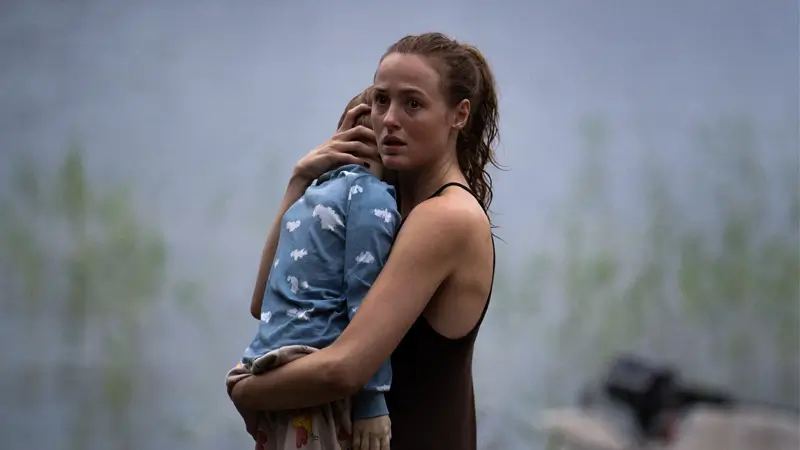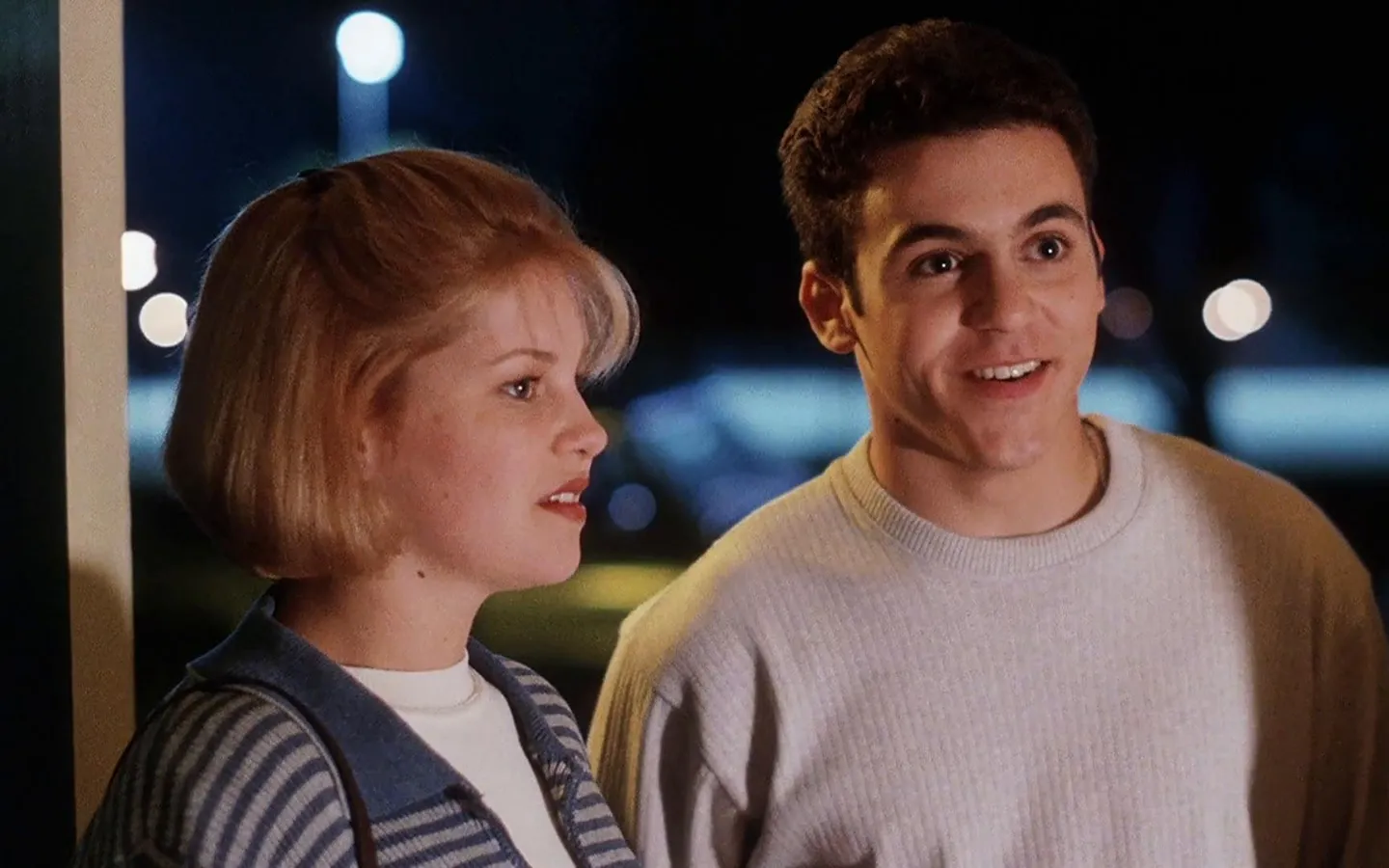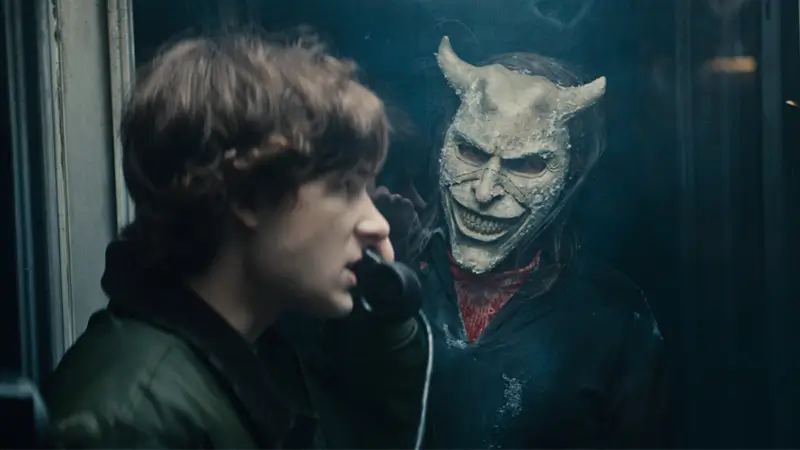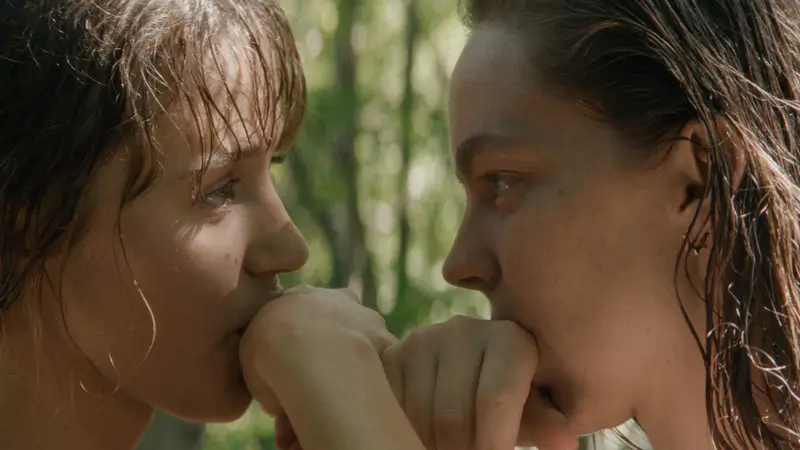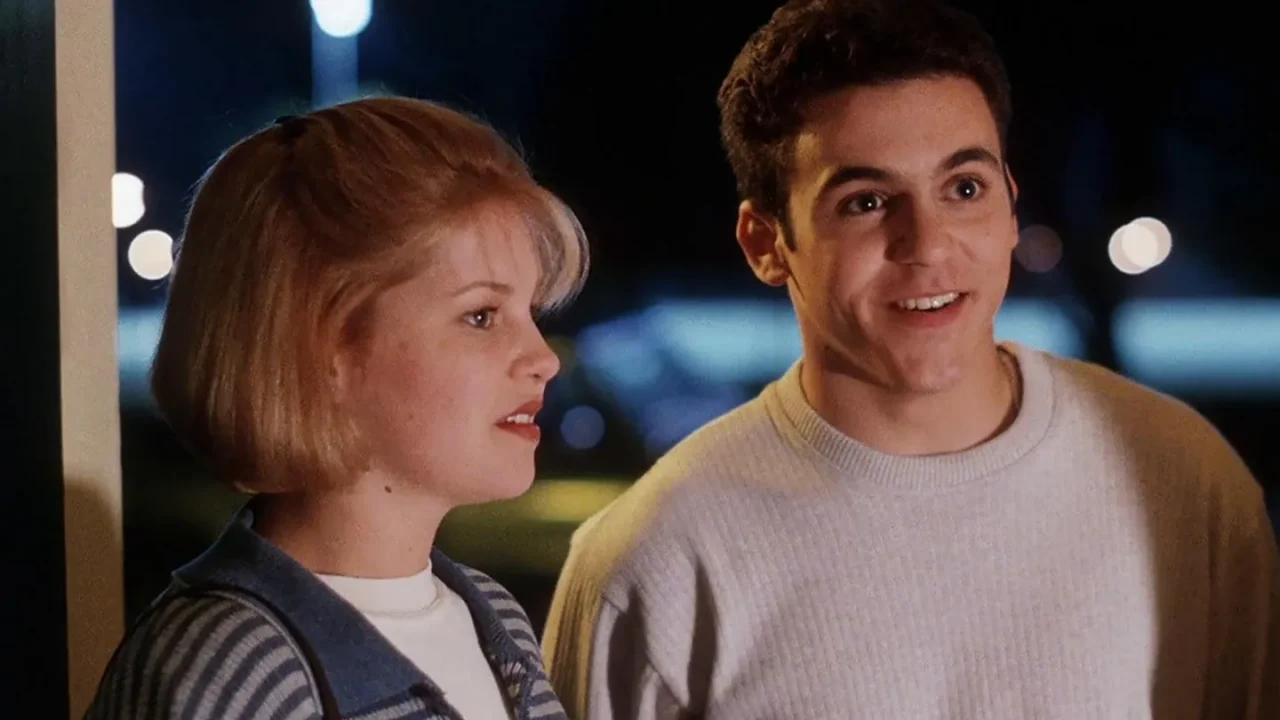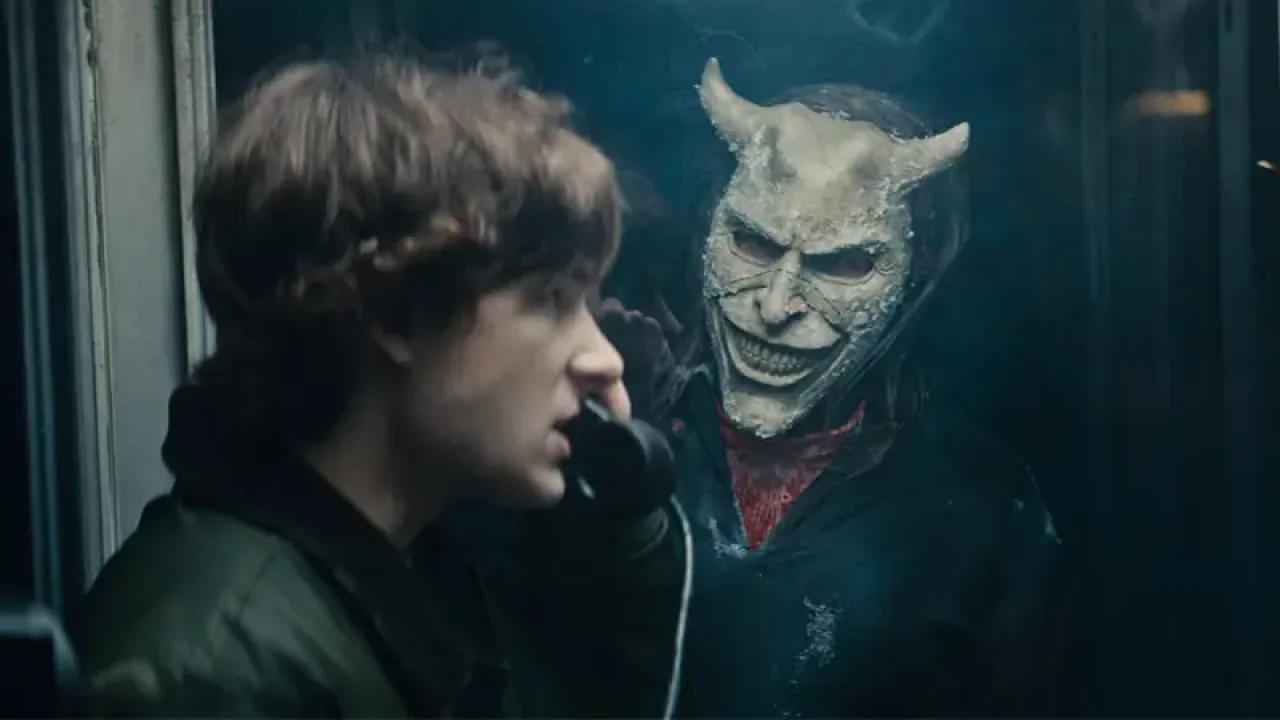Aging is a natural, progressive, and diverse process, shaped by cultural, social, and economic factors. Cinema hasn’t always reflected this plurality of ways to grow old. Older characters are often trapped in stereotypes: sometimes portrayed as fragile, sick, or useless; other times as wise and patient. While these images may contain partial truths, they rarely reflect the complexity of old age and often end up turning this life stage into something to be feared. However, some works dig deeper, seeking out nuanced layers and relevant discussions on the topic.
Aging: stereotypes and prejudices that some movies reinforce
When old age becomes a horror show, especially for a woman’s body. A cinematic subgenre, especially popular in the 1960s and 1970s, exploited the figure of the elderly woman as monstrous, villainous, or threatening. These films often featured veteran actresses in over-the-top or grotesque roles, frequently as witches, ghosts, or decaying rivals, reinforcing negative stereotypes about female aging.
Few things seem to scare Hollywood more than an aging woman’s body. From the 1960s with the hagsploitation subgenre to recent productions like Barbarian (2022), Weapons (2025), and X( 2022), female old age is often depicted as a metaphor for repulsion, decay, and monstrosity. It’s a shame, because while these films bring a certain freshness to predictable horror tropes, they still fall back on the same old stereotypes.
- You might also like: Movie Review: Weapons
This pattern echoes ancient archetypes, like the witch from Snow White or the villainess from The Wizard of Oz, reinforcing the idea that aging, especially for women, is synonymous with threat. Films like What ever happened to Baby Jane? (1962), a classic starring Bette Davis, were groundbreaking in their time for exploring female rivalries and turning the aging body into a grotesque spectacle.
Faced with productions mostly led by men, which reinforce these narrative patterns, is it possible to subvert them? French filmmaker Coralie Fargeat showed us yes — and was even recognized with the Best Screenplay award at Cannes 2024 and scored a Best Picture nomination at the 2025 Oscars for the impactful The Substance, starring Demi Moore and Margaret Qualley. Rooted in the body horror subgenre, the film updates this debate by exposing the obsession with youth and the sacrifices imposed on women to maintain a youthful appearance. Body horror emerges as a powerful metaphor for the aesthetic violence pervasive in society. Here, the aging body isn’t just monstrous: it becomes an indictment of Hollywood’s pressure on women.
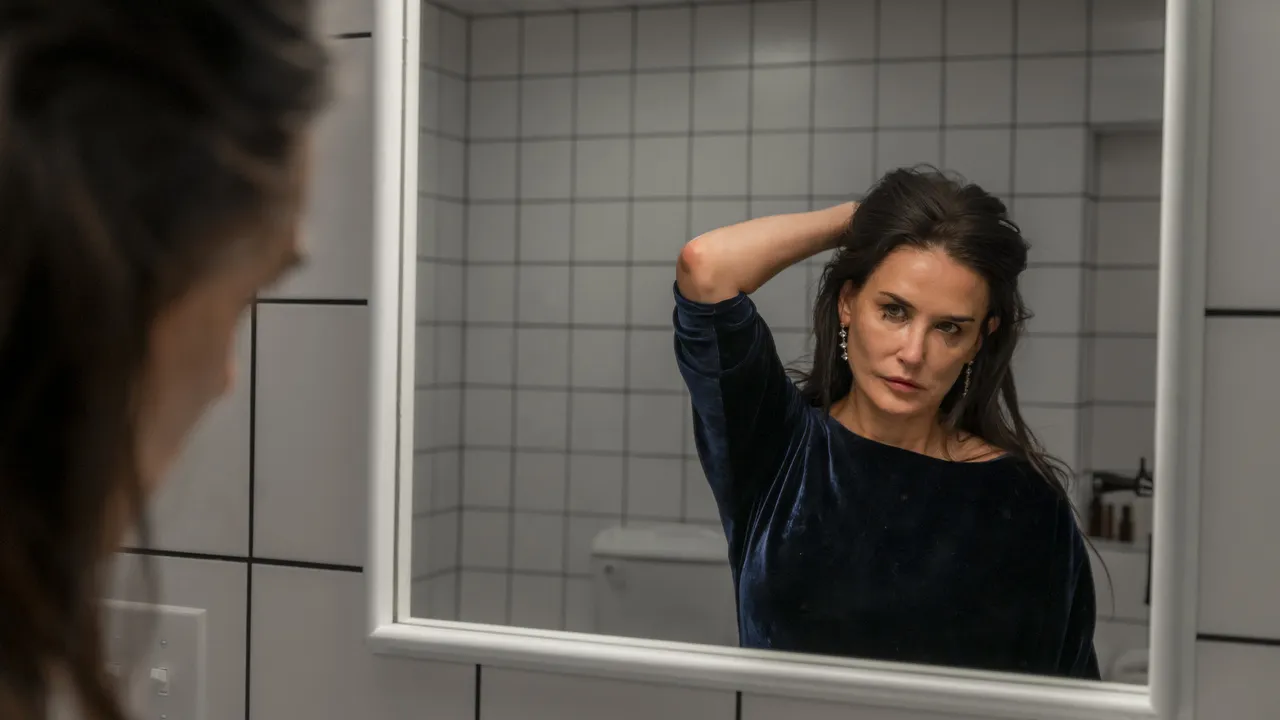
Other Ways to Narrate Aging in Cinema
If most horror productions tend to reduce old age to monsters and negative things, other genres approach the theme with greater delicacy, focusing on aging as memory, autonomy, and desire.
The Father (2020), by Florian Zeller, is one of the most powerful and sensitive portraits of old age ever brought to the screen. Winner of the Oscar for Best Actor for Anthony Hopkins and Best Adapted Screenplay in 2021, the film immerses us in the experience of dementia from the elderly person’s perspective, making the viewer feel the confusion, disorientation, and fragility that accompany memory loss. Instead of reducing old age to a stereotype, the film offers a profoundly human look, highlighting both the vulnerabilities and the dignity of this life stage. Within the debate about aging in cinema, The Father becomes essential for humanizing the experience of dementia, showing that aging is intertwined with emotions, pain, and complexities that deserve to be narrated with respect and empathy.
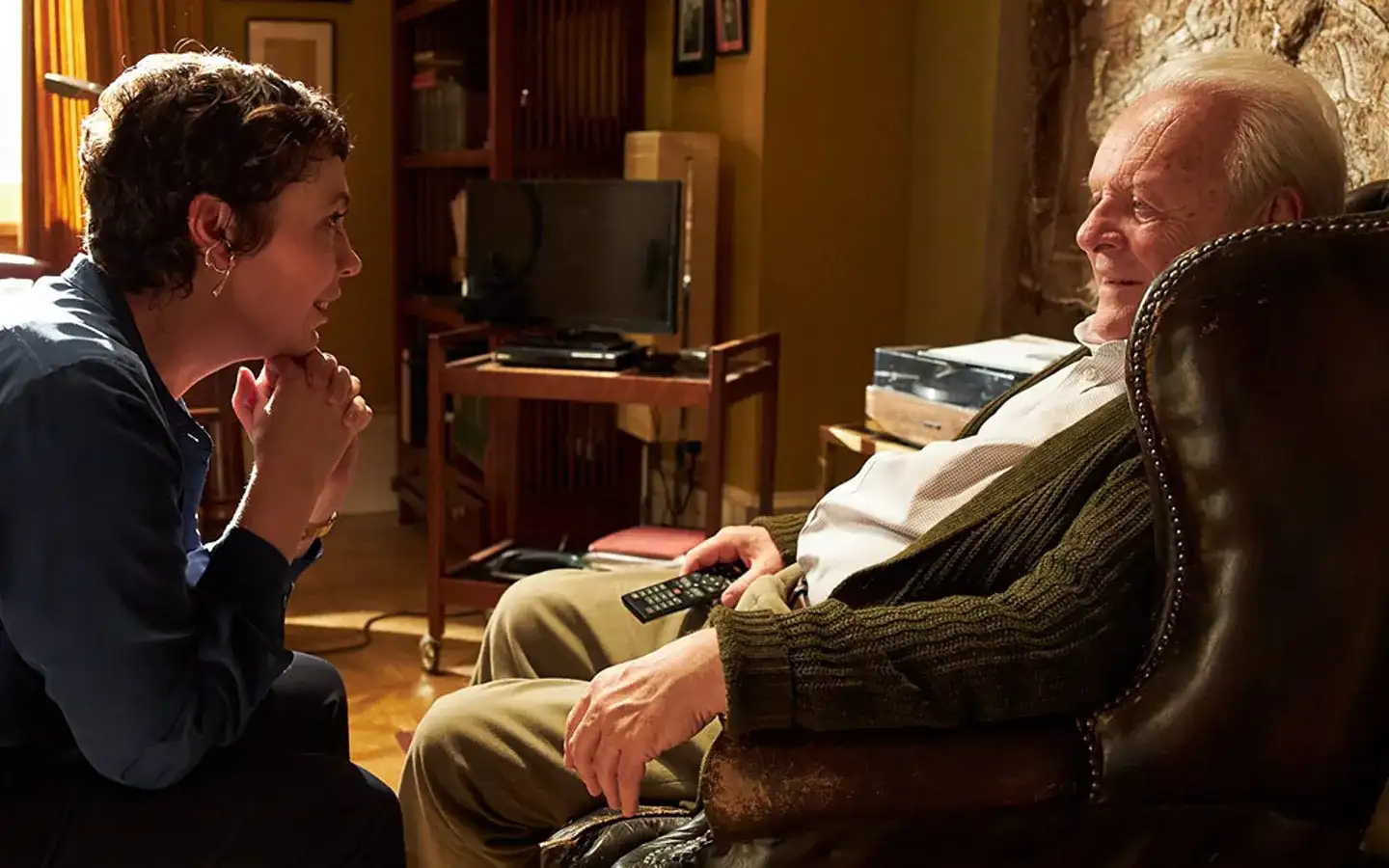
Aunt Virgínia (2023), directed by Fábio Meira, presents an intimate and realistic portrait of female loneliness in old age. The protagonist, portrayed with immense sensitivity by Vera Holtz, is a woman in her 70s who lives on the margins of her family’s decisions and daily affections, limited to the social roles imposed on her throughout her life. With her precise performance, Holtz translates the invisibility and melancholy of a character who carries both memories and frustrations through silences, glances, and restrained gestures. The film gives voice to a rarely depicted figure: the elderly woman who doesn’t fit the stereotypes of the idealized grandmother or the nurturing matriarch.
By broadening the debate on aging, Aunt Virginia highlights how female old age is still shaped by social, patriarchal, and emotional pressures that restrict women’s autonomy — but it also reveals the power of revisiting the past and facing one’s own history. Right from the opening, one of the most beautiful images emerges as a metaphor for aging: the clocks on the wall, some stopped, others broken, reminding us that time in old age can be slow, fragmented, or suspended, but it is always loaded with meaning.
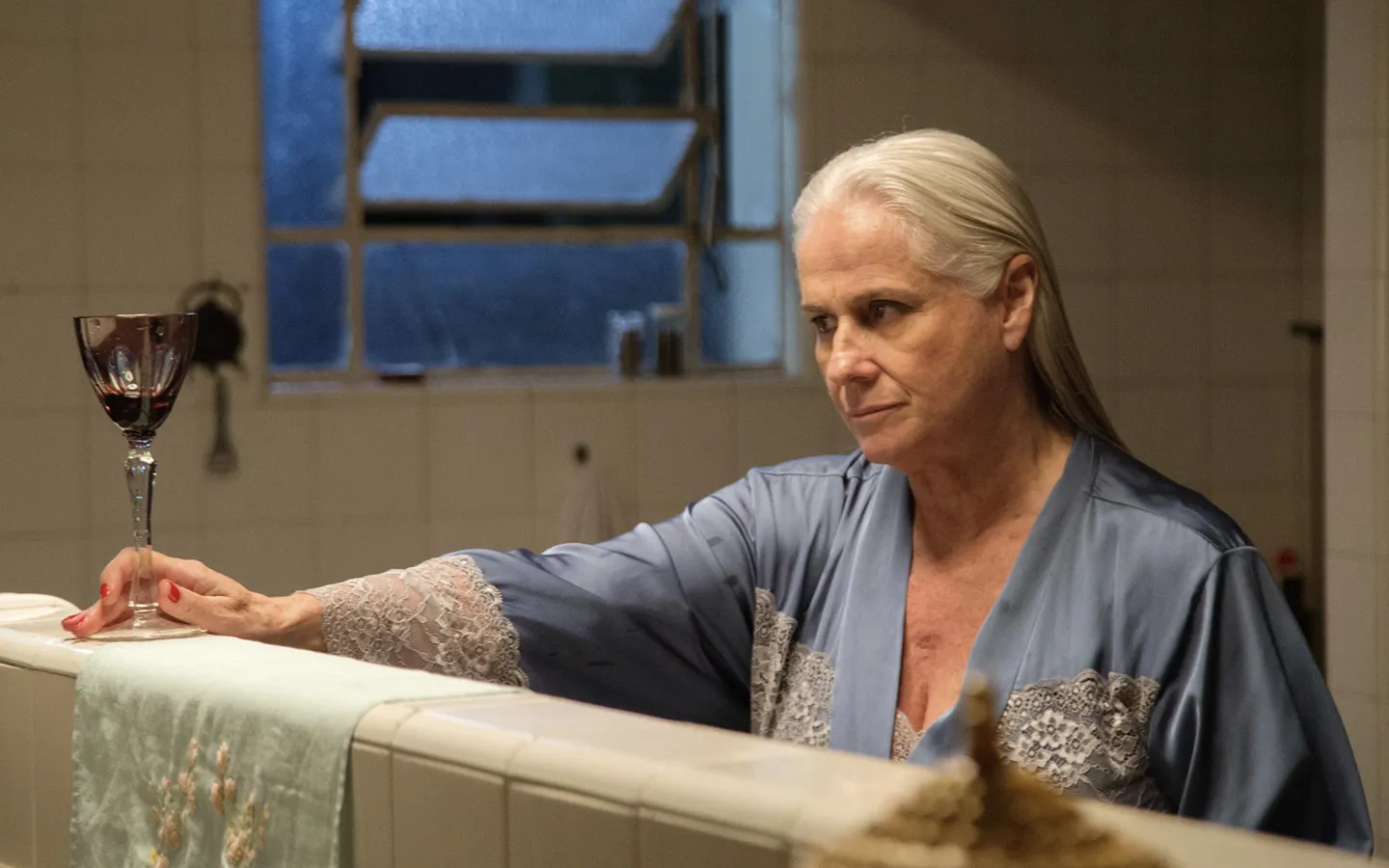
Another film that delicately works with symbols of time and old age is O Último Azul (The Blue Trail, 2025), by Gabriel Mascaro, winner of the Golden Bear at Berlin that same year. The narrative follows Tereza, a 77-year-old woman who defies a dystopian government that sends the elderly to isolated colonies. On her journey through the rivers of the Amazon, she seeks autonomy, freedom, and the fulfillment of her own desires. Animals appear as powerful metaphors for this journey: caged birds evoke imprisonment, while snails evoke slow time and the persistence of life.
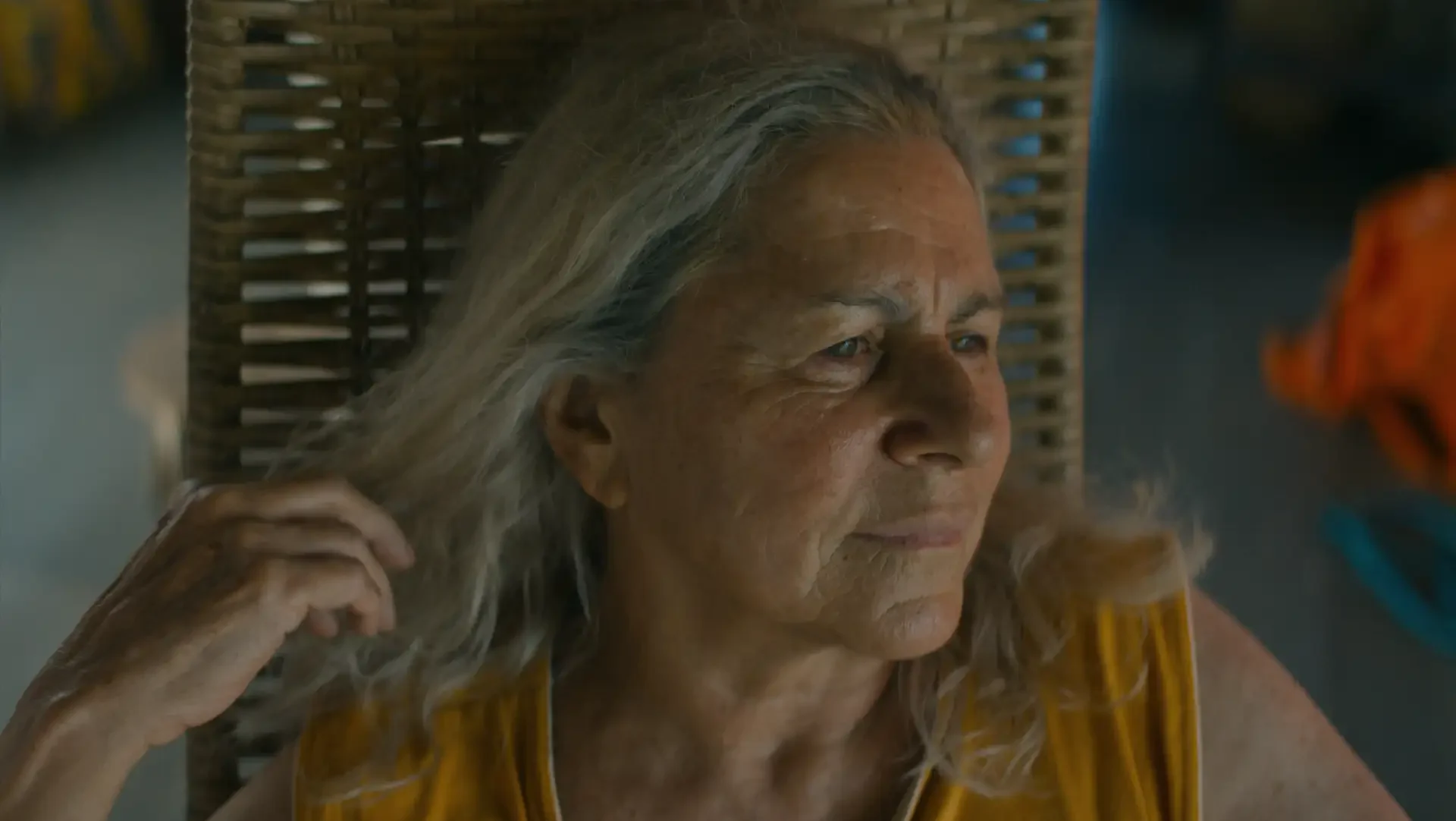
As the director himself revealed to Filmelier, his intention was to move away from the clichés that often reduce old age to death or nostalgia. “I wanted to talk about this desiring, aging female body, about the present, about the life drive,” he explained. Thus, The Blue Trail expands the debate started by films like Aunt Virginia by asserting that aging can also be about resistance, desire, and reinvention.
These films already show how cinema can deconstruct limited views of old age, revealing autonomy, memory, and resistance. But what happens when the narrative turns to even more silenced themes, like love, pleasure, and sexuality in maturity?
Older people love and have sex too
There’s nothing more empowering than a mature, desiring female body Good Luck to You, Leo Grande is a rare work that addresses female aging with humor and sensitivity, exploring sexuality in later life without resorting to degrading stereotypes. The film challenges the idea that the sex lives of older people should be invisible or a source of shame. Emma Thompson (Cruella), by embracing her desires as Nancy, becomes the protagonist of her own narrative, breaking cultural patterns that still marginalize pleasure in old age. Furthermore, the story provokes reflections on self-confidence, self-esteem, and personal freedom, showing that old age is a phase where choices, experiences, and why not, enjoyment, can be fully rediscovered.
- Check out our special list: Portraits of Aging in Cinema
Something even more sensitive, explored in the next film, is the desire to love another — the unpredictability of a feeling that isn’t limited by age. The Iranian film My favourite cake (2023), directed by Maryam Moghaddam and Behtash Sanaeeha, introduces Mahin, played by Lily Farhadpour, a widow living alone in Tehran since her husband’s death and her daughter’s move to Europe. Her routine changes when, after an afternoon tea with friends, she meets Faramarz, played by Esmaeel Mehrabi, and everything transforms. Mahin breaks the stigma of female invisibility in old age and reclaims her emotional autonomy.
The film addresses, with tenderness and courage, how desire and the search for companionship don’t fade with age but can blossom in unexpected moments. Besides following the characters’ dilemmas, shaped by the repression of a state that disapproves of this affection, the production itself faced difficulties in its country of origin.
From America, through Iran, we arrive in an almost forgotten Europe that also makes the topic sizzle. Blackbird Blackbird Blackberry (2023), by Elene Naveriani, fits perfectly into this theme of aging, sexuality, and female autonomy in middle age. The work sensitively explores the journey of Eka Chavleishvili, who plays Etero, a 48-year-old woman living alone in a small village in Georgia. After a near-death experience, she allows herself to live an unexpected romance with a local delivery man, challenging social norms and rediscovering her own sensuality. The narrative tackles themes like loneliness, desire, and the search for personal freedom, highlighting the complexity of emotional and sexual life in maturity.
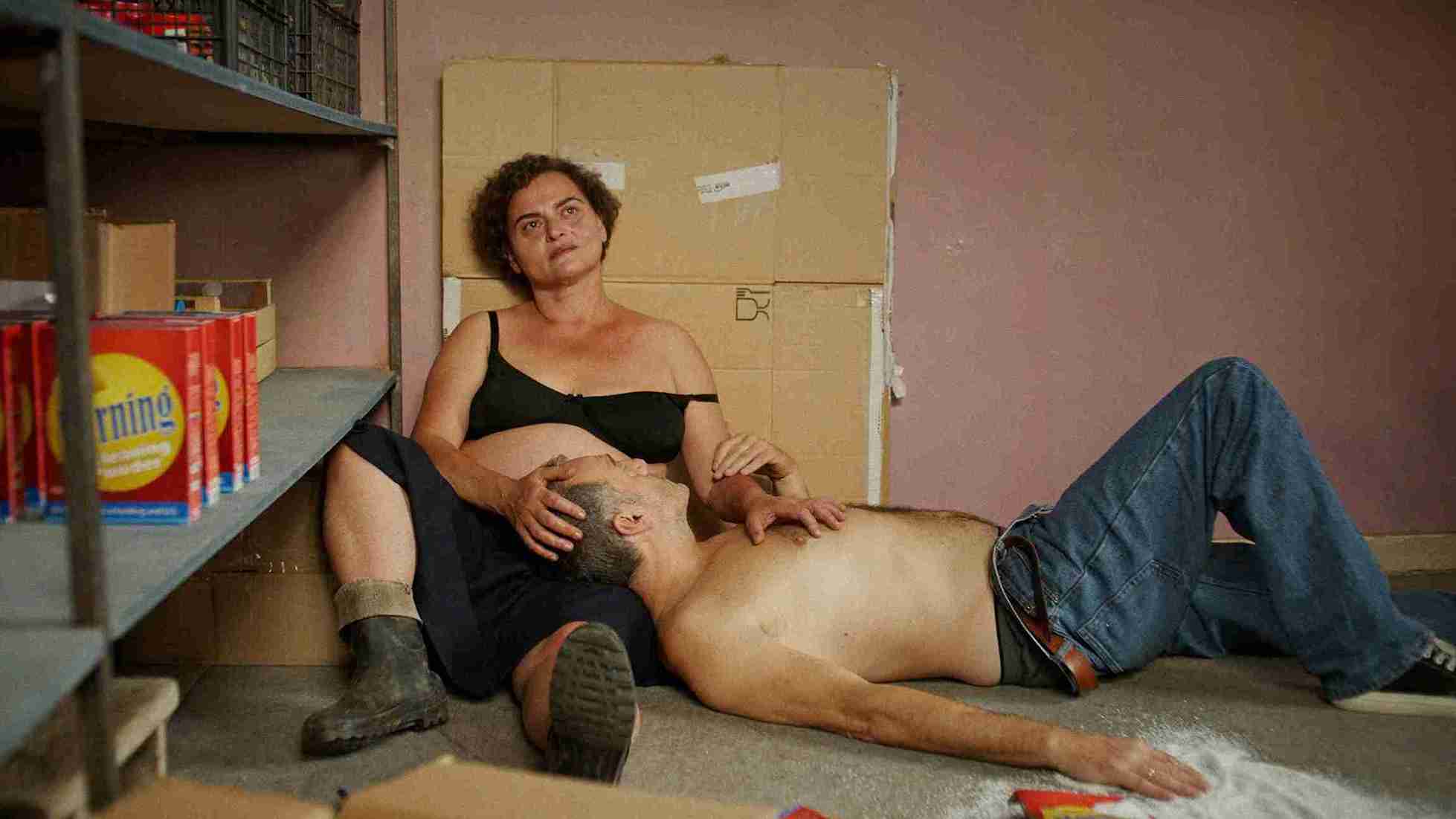
Therefore, these films are significant additions to the list of works addressing aging and female sexuality, offering honest and touching perspectives on love, desire, and freedom in life stages that traditional cinema insists on silencing. Or rather, that an entire society prefers to silence. And, leaving fiction aside, what are we left with?
Beyond Fiction: The documentary lens on aging
If fiction already paves the way for reflecting on old age, it is in documentary filmmaking that the theme gains an even more intimate and transformative dimension. In this field, Chilean filmmaker Maite Alberdi stands out as one of the most sensitive voices today.
In The Mole Agent (2020), Alberdi combines humor and investigation as she follows an elderly man who goes undercover in a nursing home to spy on suspected mistreatment. What begins as a near-police mission transforms into an affectionate portrait of bonds, solidarity, and humanity, disarming prejudices about life in institutions.
Then in The Eternal Memory (2023), the director delves into the story of a Chilean couple, Paulina Urrutia and Augusto Góngora, marked by Alzheimer’s, revealing how love resists the erosion of memory. The film is a moving testimony about intimacy, care, and the permanence of affection even in the face of loss.
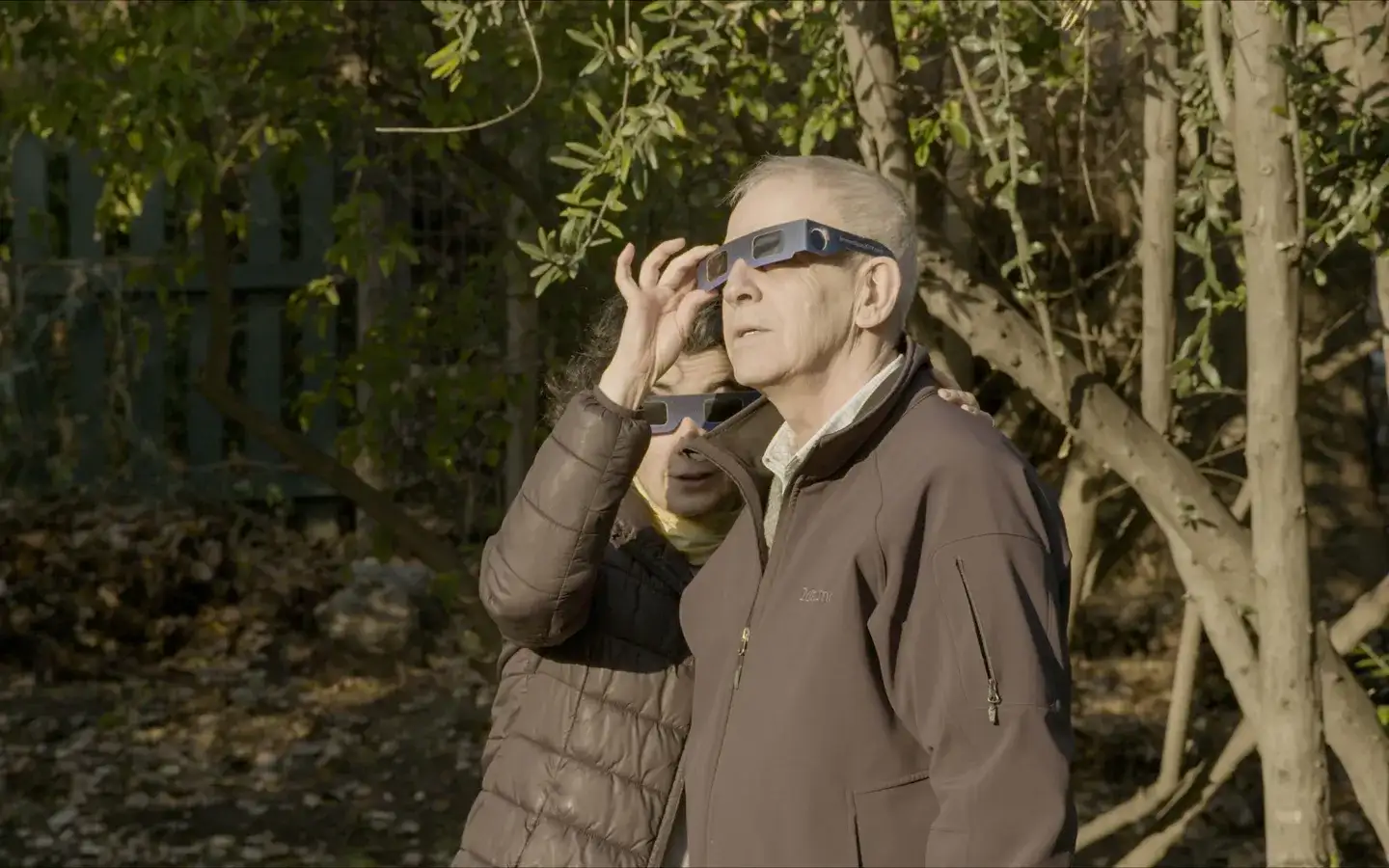
These documentaries challenge stigmas by showing old age as a territory of multiple experiences, far from the reductive view of decay. In Brazil, works like Além do Aposento (2023), by Gabriel Martinez, and Envelhescência (2015), by Gabriel Martinez and Gabriel Uchida, also broaden the debate by portraying retirement as an opportunity for reinvention. We follow real people who reaffirm their autonomy and seek a more fulfilling and desiring life. Both documentaries are available for free on YouTube.
Other essential movies about aging
The Last Showgirl (2024) – drama
Directed by Gia Coppola, the film follows a former Las Vegas dancer who must reinvent her life away from the stage. An affectionate and critical look at identity, aging, and reinvention after fame.
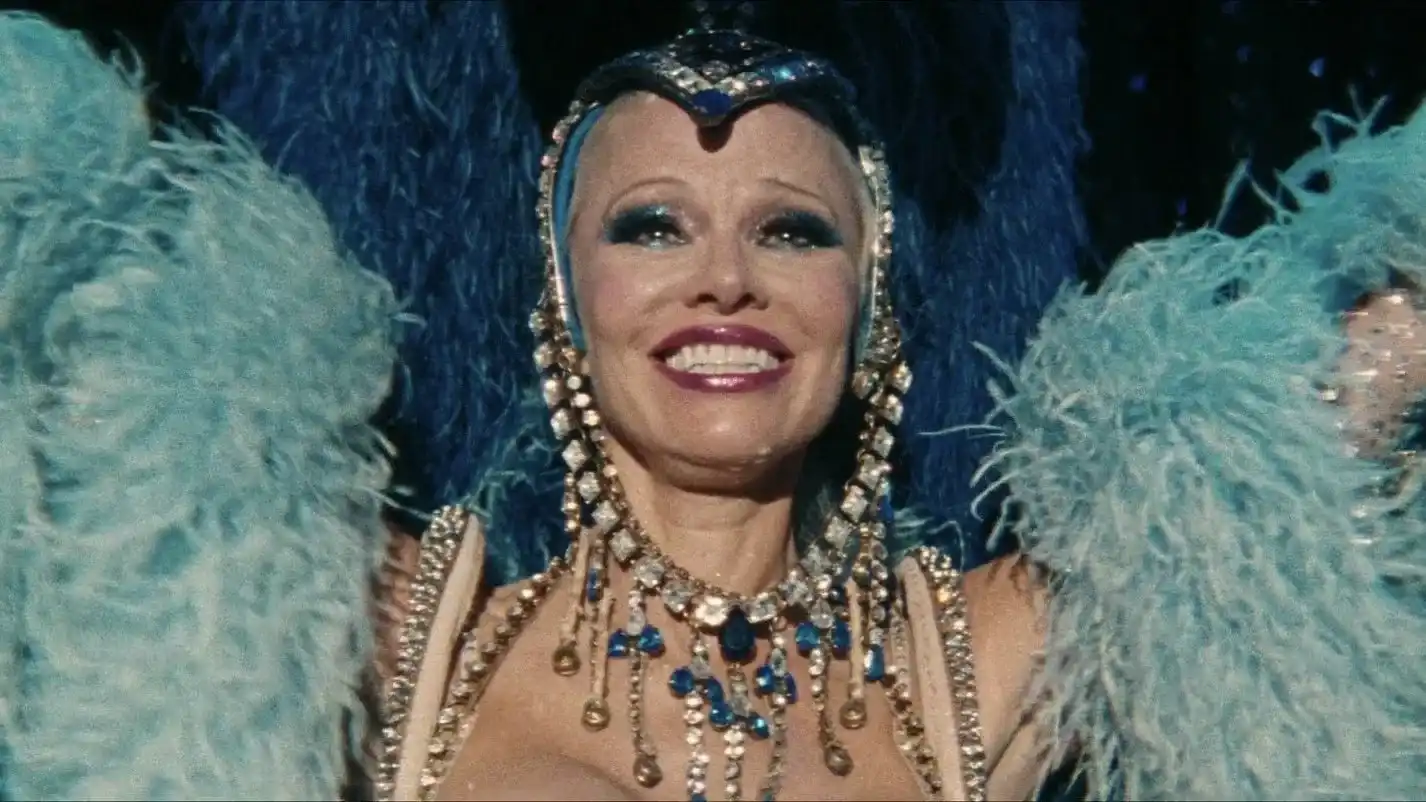
Thelma (2024) – dramedy
From Josh Margolin, brings the delightful story of a 93-year-old grandmother who decides to hunt down the scammers who tricked her. With humor and action, the film shows vitality and resistance in old age.
Familiar Touch (2025) – drama
Sarah Friedland explores the relationship between care, the body, and aging, highlighting how family bonds shape how we age and each individual’s autonomy.
Tokyo Story (1953) – classic/drama
A masterpiece by Yasujirō Ozu, it follows elderly parents who visit their children in the city and perceive the emotional distance created by time. A delicate reflection on family, loneliness, and modernity.
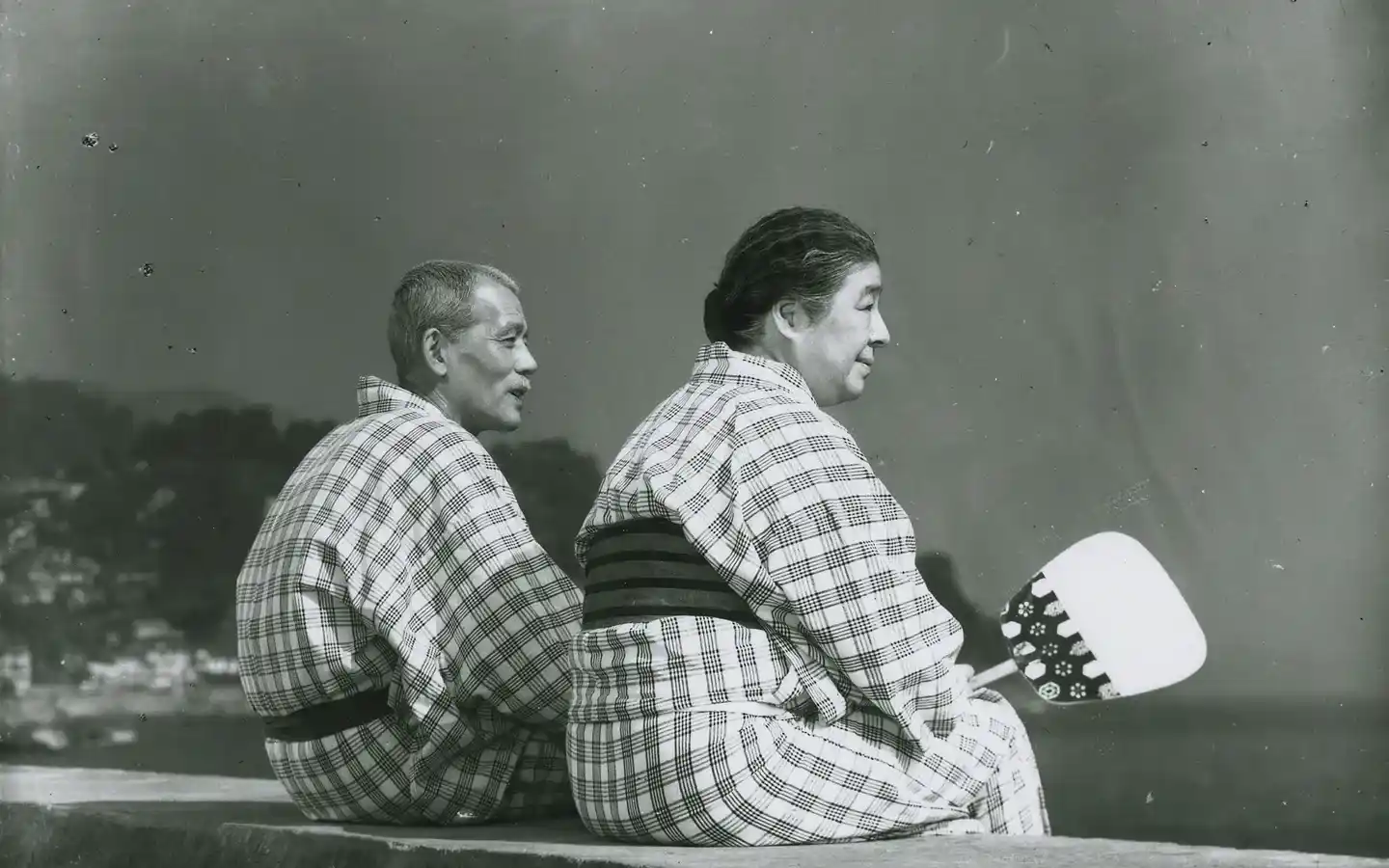
The Dew Point (2023) – social drama
Directed by Marco Risi, it addresses old age in Italy from a political and emotional perspective, questioning abandonment, exclusion, and the rights of an aging generation.
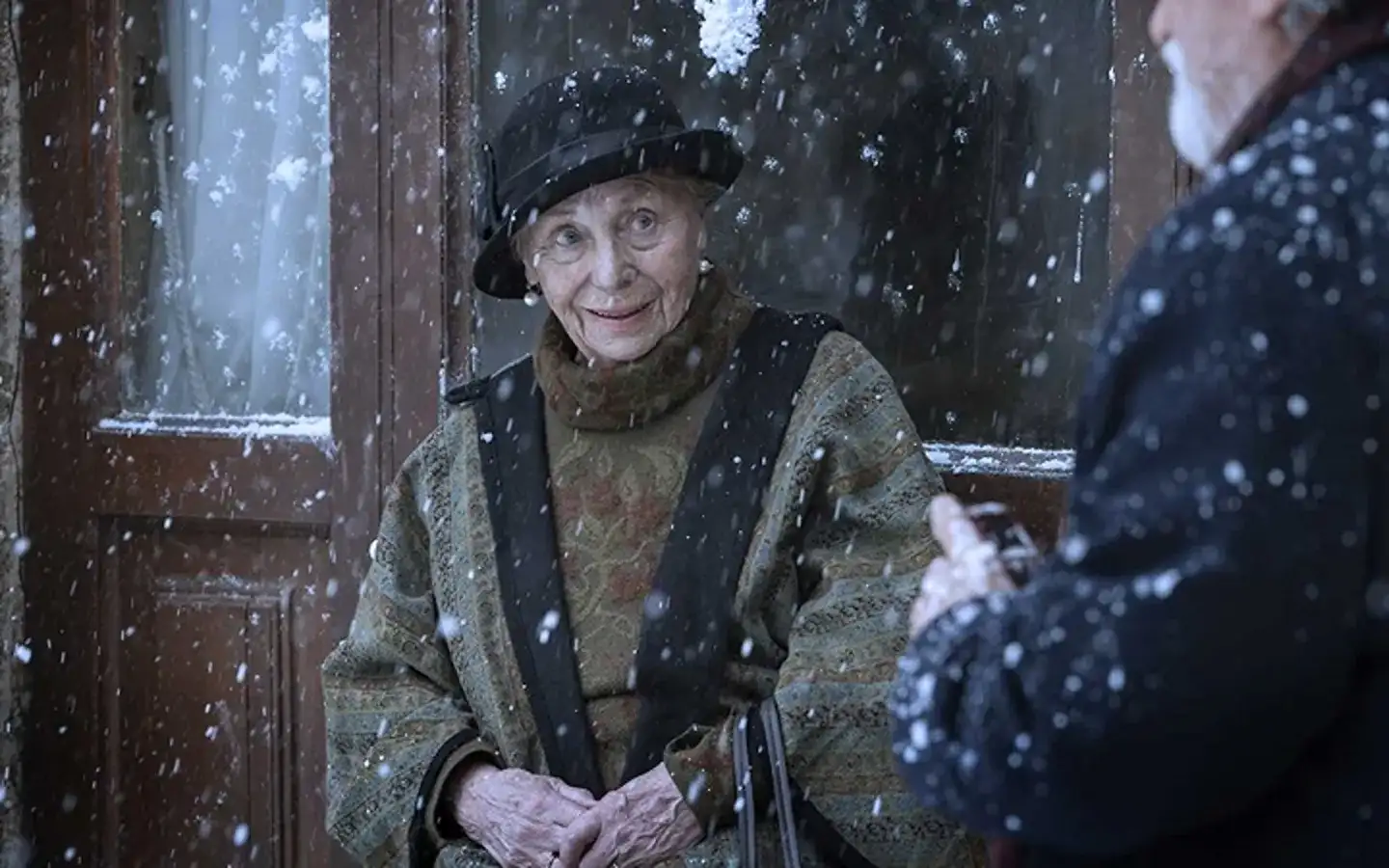
Lucky (2017) – existential drama
Starring Harry Dean Stanton in his screen farewell, the film portrays a 90-year-old man facing finitude with serenity, philosophy, and touches of humor.
The G (2023) – Thriller
Karl R. Hearne subverts aging stereotypes by presenting Ann Hunter, an elderly grandmother who, after being forcibly placed in a nursing home by a corrupt guardian, decides to fight back. The movie turns aging into a territory of resistance and action, placing its protagonist at the center of a revenge thriller that highlights the struggle for autonomy and dignity.
Pacarrete (2019) – drama/biographical
By Allan Deberton, it narrates the real story of an elderly ballerina from Ceará who never gave up dancing. A celebration of art, resistance, and creative power in old age.
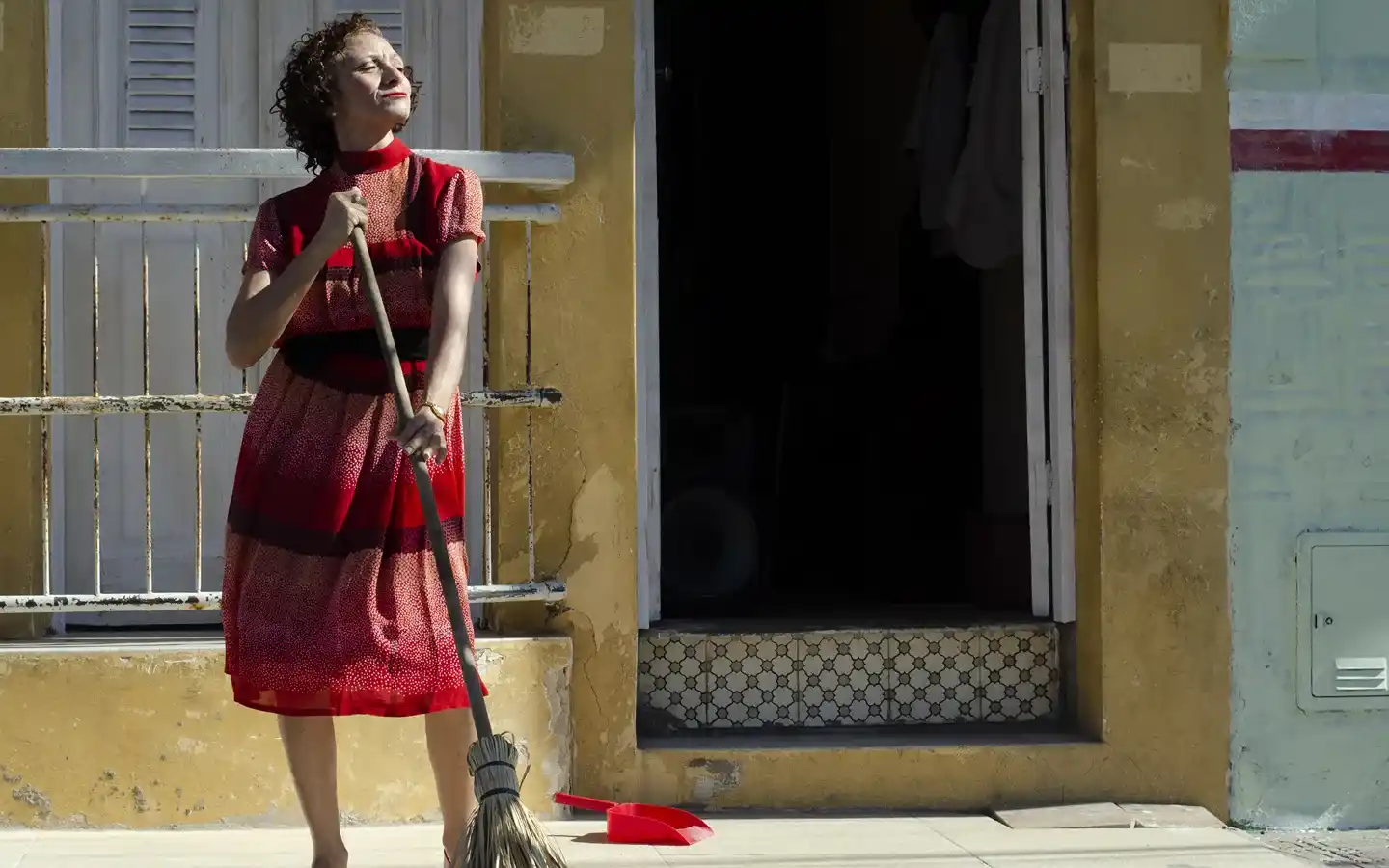
Cinema has much to gain when it understands that aging isn’t about ending, but about seeing life from a different perspective. The audience gains too, especially those who see themselves in these stories. In recent years, a wave of films on the topic has been celebrated at film festivals and awards ceremonies. And for good reason: we seek more representation on screen. Times have changed, and our life expectancy is higher than ever compared to recent decades. We will increasingly have older people empowering themselves and their desires — and cinema, when it opens itself to these narratives, will have something beautiful to film.



